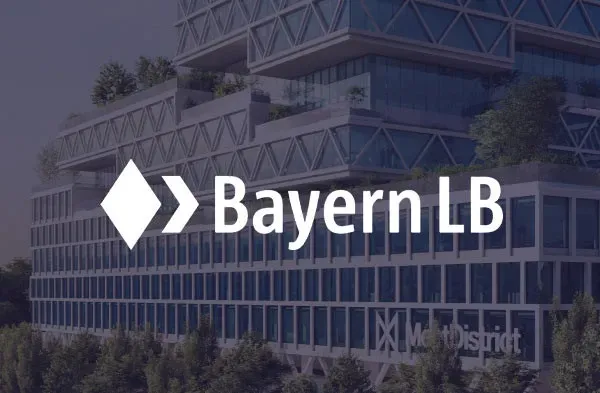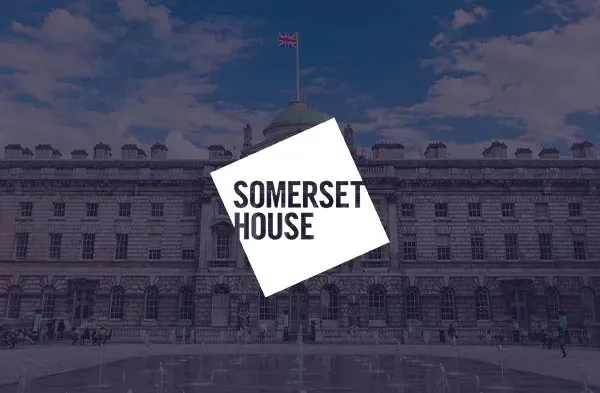BayernLB
BayernLB engaged Focus Group to improve its connectivity, optimise productivity and enhance its working environment.
xs
sm
md
lg
xl
Having a Multi-factor authentication solution for business is rapidly growing in popularity among businesses looking to boost their security posture and reduce the risk of unauthorised access to private data. By requiring multi-factor authentication and evidence of identification before granting access to systems, applications and online services, your business will benefit from an extra layer of security beyond the traditional username and password combination.
Enquire nowMulti-factor authentication (MFA) is a crucial security measure for businesses to protect their sensitive information and systems from unauthorised access. A multi-factor authentication solution for business adds one or more extra layers of security that require users to provide multiple forms of identification verification, including push notifications, mobile and email codes, or other forms of identity confirmation. These methods are used to ensure they are authorised to be using the account they are login in with.
MFA will combine something the user remembers (password or PIN), with something they have (physical token or mobile device), or something they are (fingerprint or facial recognition). By implementing a Multi-factor authentication solution for business, you can significantly reduce the risk of unauthorised system access, as even if one factor is compromised such as a compromised password or pin code, the additional factors provide an added level of protection. This helps prevent unauthorised access to critical systems, data breaches, and identity theft. MFA is an effective way for businesses to enhance their security posture and mitigate the risk of falling victim cyber attacks, ensuring that only authorized individuals can access your sensitive resources and information.


With the increasing sophistication of cyber threats multi-factor authentication is becoming a crucial line of defence for businesses in today’s digital landscape. Providing an additional layer of security, businesses will protect sensitive data by requiring all users to provide multiple forms of identification before accessing systems housing information and can be forced to do so multiple times to provide extra layers of defence. Implementing a Multi-factor authentication solution for business significantly reduces the risk of unauthorised access, data breaches, and identity theft. Focus Group can help set up MFA for all your critical systems, ensuring your business can protect its valuable assets, such as customer data, financial records, and intellectual property, from being compromised.
Furthermore, our MFA solutions will enhance user trust and confidence in your business’s security measures, positively impacting customer relationships and brand reputation by ensuring their data is secure at every level. Adopting multi-factor authentication is essential for businesses to safeguard their digital infrastructure and maintain a secure environment for their operations, and our experts can get you set up and secure in no time.
![]()
Single licenses allow your authorised users to utilise their MFA credentials across multiple systems, applications and devices. Enjoy streamlined authentication processes and eliminate the need for multiple sets of credentials, simplifying the overall user experience and ensuring the security of your business posture.
![]()
Reducing administrative burdens and improve operational efficiencies for you IT team, multi-factor authentication solutions for business offer centralised management, automated provisioning and self-service options, allowing for quick and easy user onboarding, credential management and extensive support.
![]()
By implementing MFA, businesses can ensure users have secure access to sensitive systems and data, meeting compliance standards such as GDPR and industry specific legislation and requirements. MFA adds an extra layer of protection, mitigating the risk of unauthorised access and potential data breaches.
![]()
Multi-factor authentication solutions offers multiple layers of security to protect sensitive information and systems. Each layer of authentication adds an additional hurdle for potential attackers, making it more difficult for them to gain unauthorised access to your company accounts and data.
![]()
User-friendly and easily integrated into existing systems, implementing a multi-factor authentication solution for business will allow you to leverage various authentication factors such as to strengthen your cyber security and create multiple robust lines of defence protecting your systems.
![]()
With the increasing trend of employees accessing company resources from home, the risk of unauthorised access and data breaches is more significant. MFA adds an extra layer of security by requiring remote workers to provide multiple forms of identification before accessing company data.
In the cloud-based approach, the multi-factor authentication solution for business is hosted and managed by a third-party service provider. This offers convenience, scalability and ease of implementation, as the infrastructure and updates are handled by the provider.
On the other hand, on-premise MFA solutions are deployed and managed within the organization's own infrastructure, offering more control and customisation options. businesses with strict regulatory requirements or specific security concerns often prefer on-premise solutions.
Both options have their advantages, and the choice depends on factors such as security needs, budget and business-wide preferences.


Additional security verification is an advanced feature of multi-factor authentication solutions that enhance security by dynamically adjusting the level of authentication required based on various factors.
This feature leverages contextual information such as user behaviour, location, device characteristics and network information to assess the risk level of each authentication attempt.
By analysing this data, the system can intelligently determine whether to prompt for additional factors beyond the initial authentication step. For example, if a user typically logs in from a specific location or device and suddenly attempts to log in from a different country, the system may require additional verification steps to ensure the legitimacy of the login attempt.
Adding an extra layer of protection by continuously adapting the level of authentication based on the evolving risk profile of each authentication attempt ensures your business’s security posture remains robust.
Offering businesses of all sizes the flexibility to deploy and manage authentication infrastructure, a multi-factor authentication solution for business can be hosted in the cloud or on-premise.
Cloud-based hosting offers the convenience of outsourced infrastructure management to a third party, resulting in reduced maintenance burdens which ultimately enables smooth scalability and accessibility - ideal for businesses that prioritise quick implementation and minimal upfront expenses.
Alternatively, on-premise hosting grants businesses greater control, enabling internal maintenance of MFA infrastructures. This option is often favoured by businesses with strict security demands or specific compliance regulations.
Determining the suitable hosting option for your business requires considerations regarding security requirements, budget, scalability and the business-wide IT strategy.


Multi-factor authentication systems offer a range of authentication options such as one-time passwords (OTP) delivered via SMS or mobile apps, biometric factors like fingerprints or facial recognition, hardware tokens and even smart cards.
This flexibility empowers businesses like yours to choose the authentication method that best aligns with your preferences. This also enables you to accommodate a variety of devices and platforms.
By offering multiple authentication choices, MFA systems enhance usability while maintaining a high level of security and protection against unauthorised access.


To activate multi-factor authentication for your business, you’ll need to consult your business security policies, implement a suitable MFA solution and guide employees through the setup process.
MFA (Multi-Factor Authentication) is a broader term encompassing various authentication methods, while 2FA (Two-Factor Authentication) specifically refers to the use of two verification factors for authentication.
MFA adds a crucial extra layer of security to business networks and applications by requiring multiple verification factors, significantly reducing the risk of unauthorised access to accounts and sensitive information.
Multi-factor authentication protects your business from unauthorised access attempts. By requiring multiple phases of authorisation to be completed ahead of access to secure accounts and sensitive information, your business’s security posture will remain strong, reducing the risk of data breaches and criminal activity.
Multi-factor authentication should be used by businesses looking to enhance the security of accounts and sensitive information, especially for online banking, email and cloud services.
Yes, a user typically has the ability to disable MFA for their account. However, it is generally not recommended as it weakens the security of the account and businesses may want to consider this on a case-by-case basis only.


